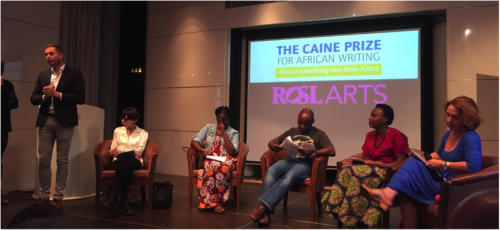Taiye Selasie coined the phrase Afropolitan to describe the worldwide presence of educated, prosperous Africans.
The phrase is a dated now, but it still describes great numbers of Nigerians, Ghanaians, Kenyans and others doing high-powered jobs in finance, technology or media. They confound any expectations that Africans go to the West and end up working in healthcare or security.
African countries have been independent for up to 60 years—time for two or even three generations of professionals to move up the social scale and out into the globalized economy.
This chapter looks at Africans who have moved out not as economic migrants, but people whose skills make them vital to international business or development agencies.
But it’s no accident either that experience of personal diaspora and international-level skills in English and the professions are linked to success in publishing and awards.
You will meet the white Zimbawean whose pioneering 2012 anthology showed beyond doubt that Africans did write SFF—many of them. You’ll meet the NGO volunteer who has lived the USA, France, and so many African countries. And you’ll meet the Nigerian who, as an editor, helped till the roots of African SFF in the blog
The Naked Convos.
You can read through the whole chapter by following the “next” links at the end of each interview, or jump to a specific interview by using the links below. You can always return to this chapter index by clicking on the “100 African Writers of SF—Part Twelve” link at the top of each interview, and return to the overall project index by clicking on the 100 African category, or clicking
here.
 Caine Prize Panel, London, 2018
Caine Prize Panel, London, 2018
(
Masthead Photo credit: photo of Murtala Muhammed Airport, Lagos, By Kenneth Iwelumo - http://www.airliners.net/)“I miss my people, the people I grew up with, the way of being we had, we are scattered all over the world now. I think people who grow up and live in the same town or even country don't know how lucky they are, to have your family and friends close throughout your life, that is a gift beyond measure.”
“People tell you that travel will open your mind. Travel has actually made me super-cynical about everything. Terry Pratchett has made me super-cynical about everything but so has travel. (Chuckles) At first it was, ‘Wow this is great look at all these people; look at how they’re dressed; look at what they’re eating and the different expression culture in of dance and art.’ And then you start learning the languages, and everybody is having the exact same conversation about everything no matter where you are. In every single country. I’m expecting to meet the same great person and the same a**h***. (Chuckles) Everywhere I go.”
“There’s a whole system designed to make you think that the only future for African cities or peoples or cultures is to achieve what other so-called developed countries have. It’s an extremely limited view. Unfortunately it’s a response to colonialism, or what people call neo-colonialism, which is like (chuckles) colonialism by proxy. It’s remote colonialism from afar with the culture and the terminology and the attitude. Your mind cannot see past it.”
 Caine Prize Panel, London, 2018
Caine Prize Panel, London, 2018